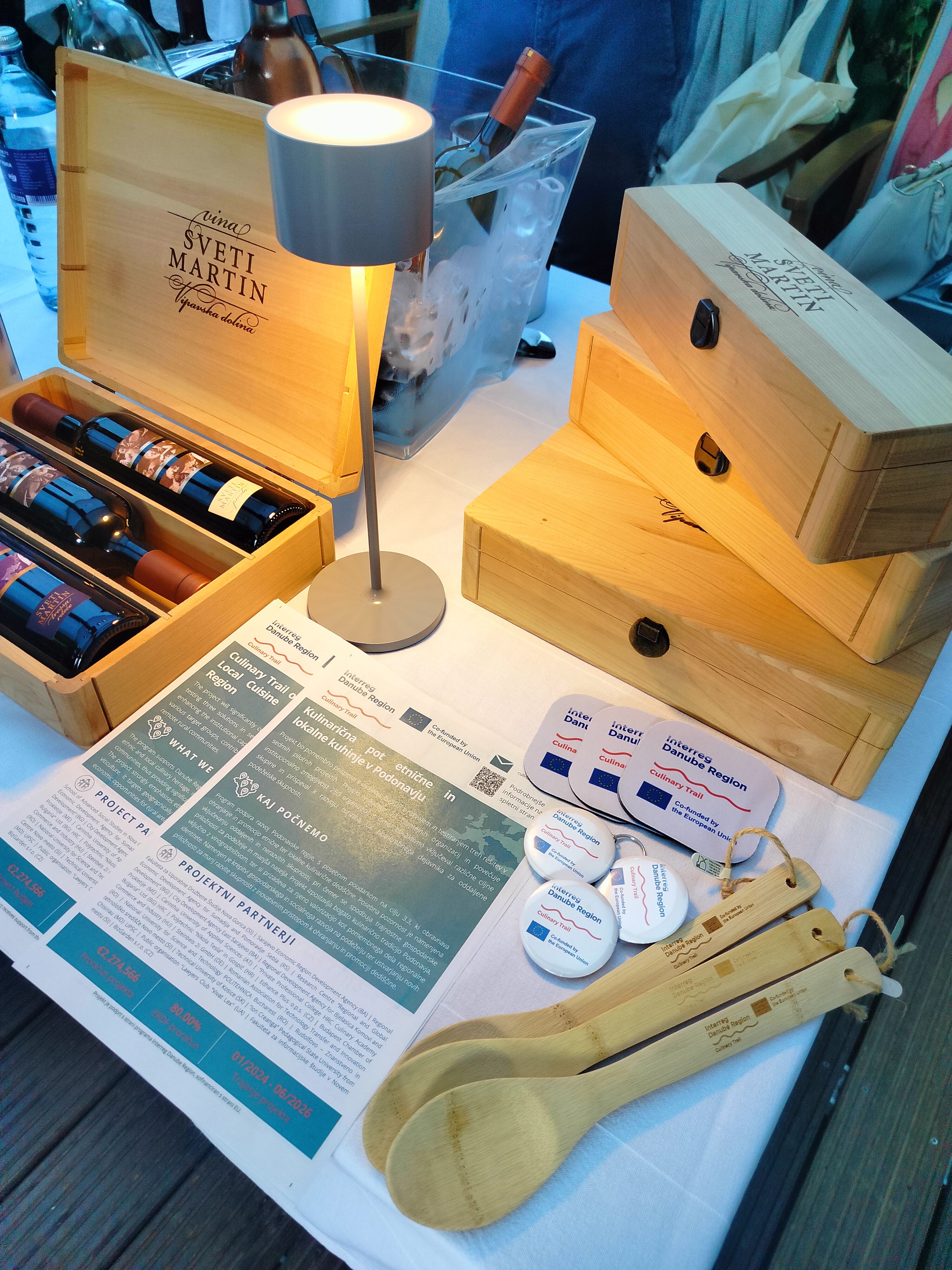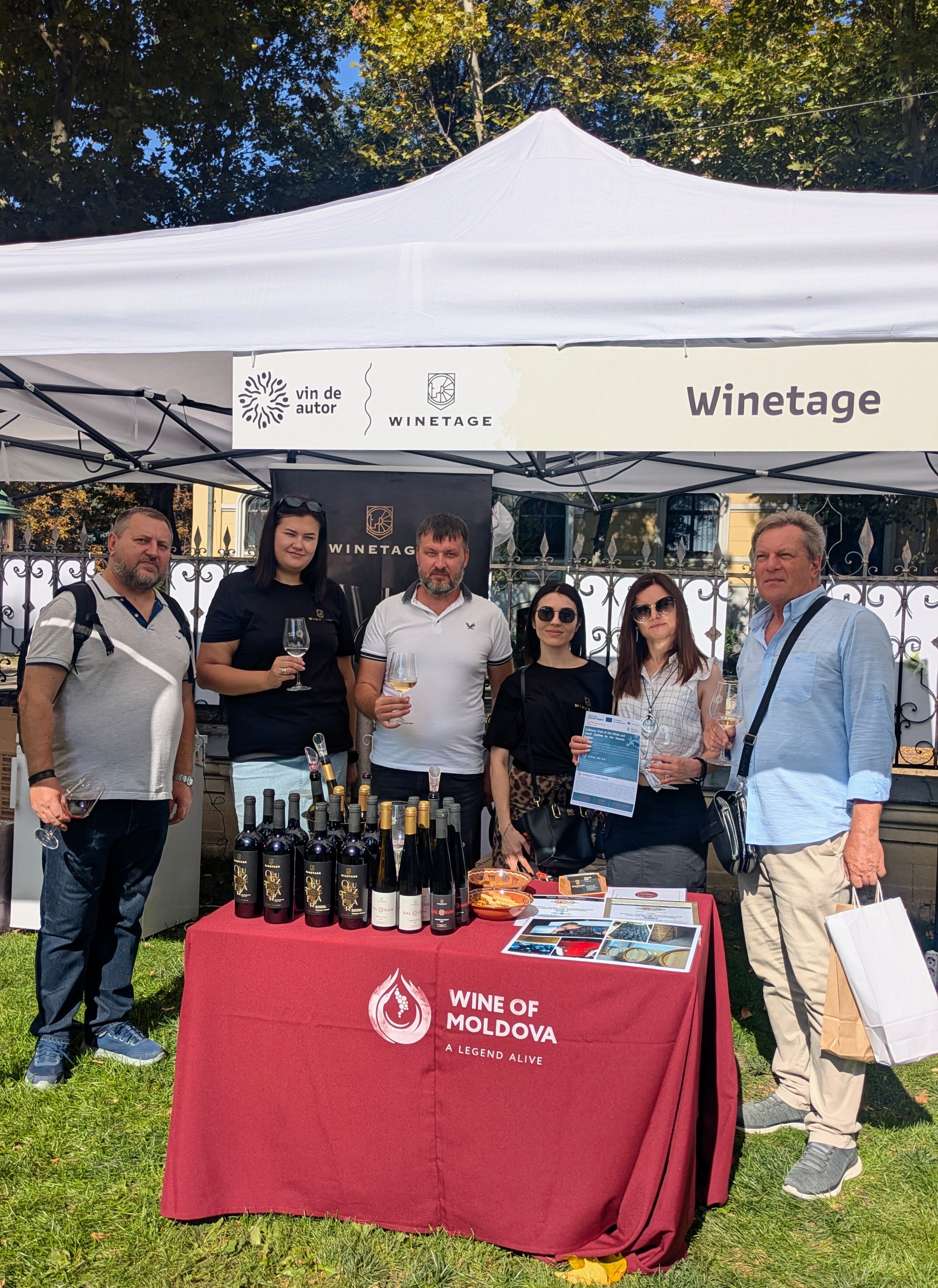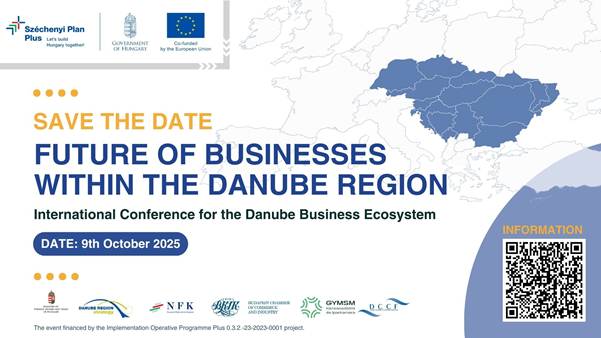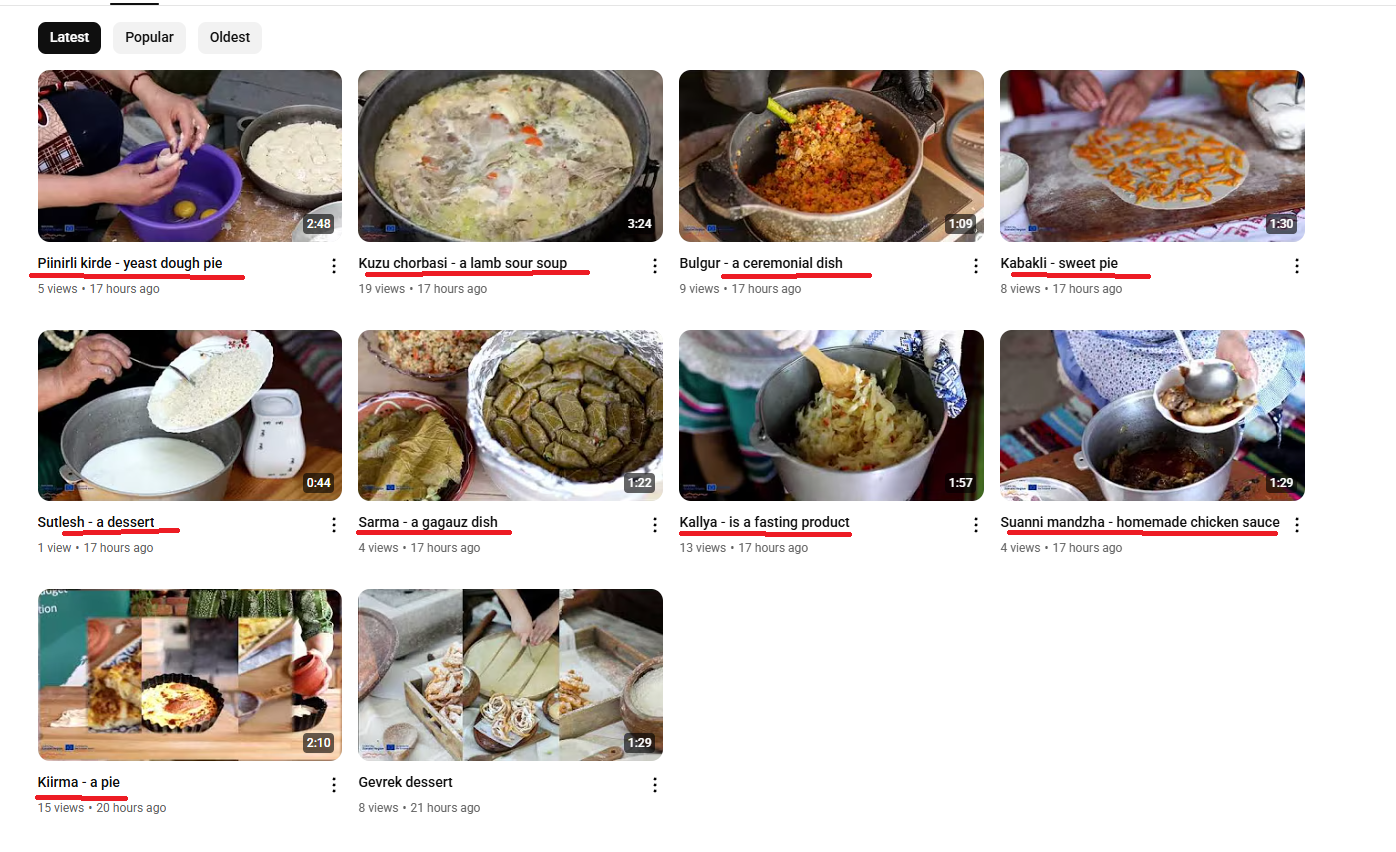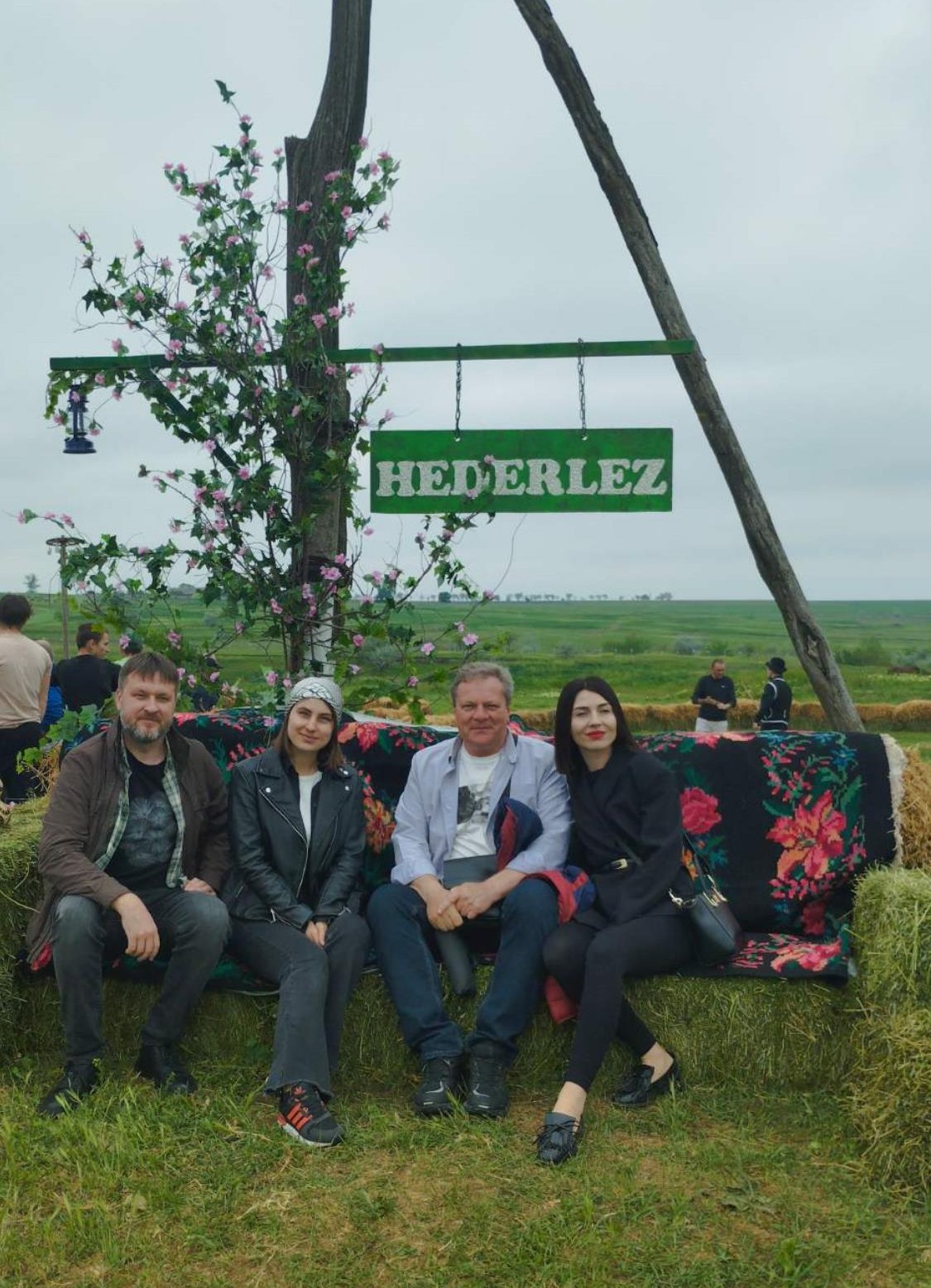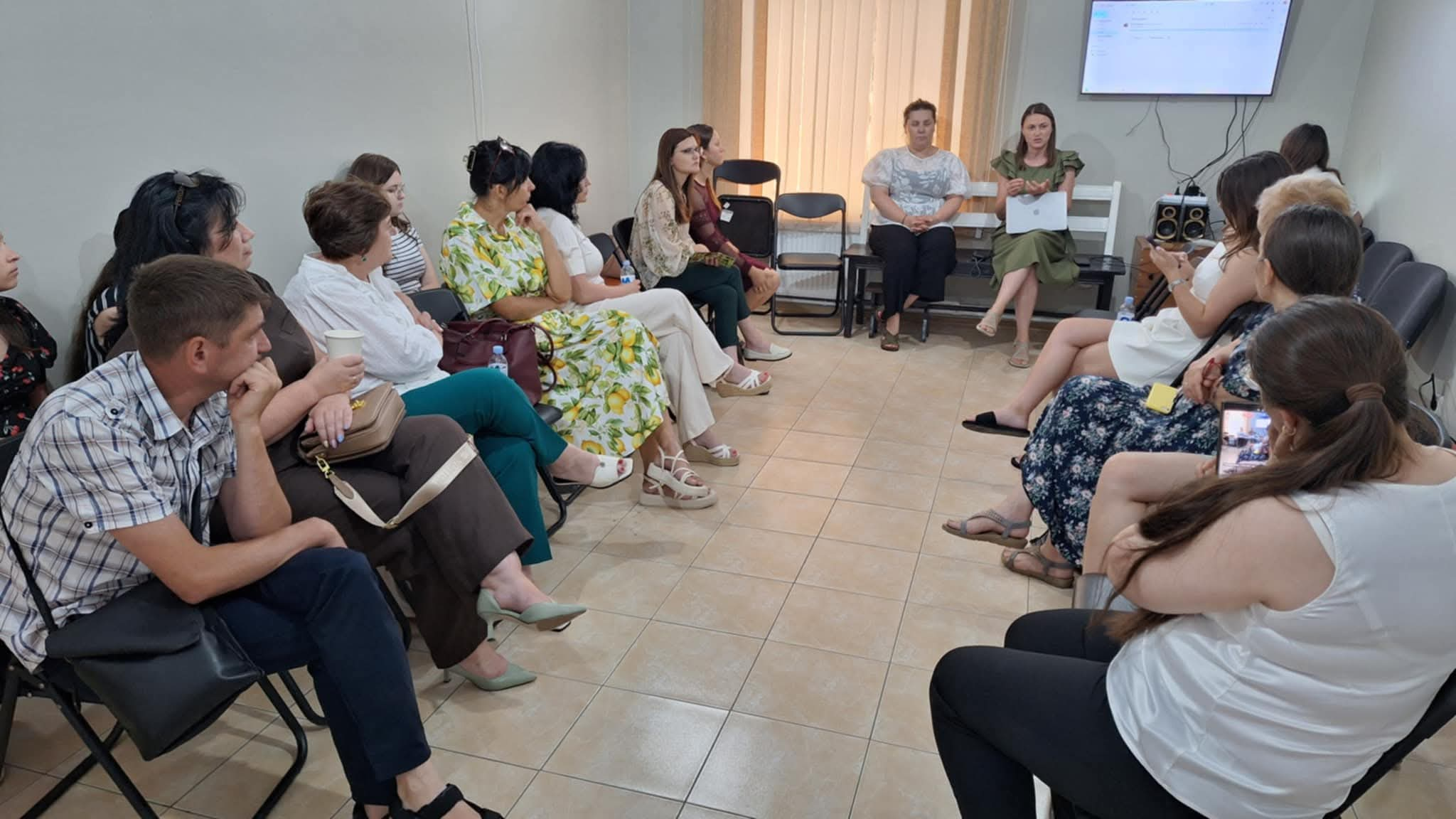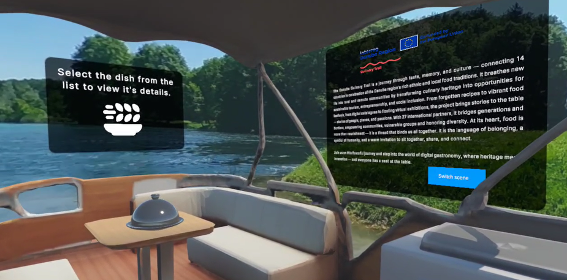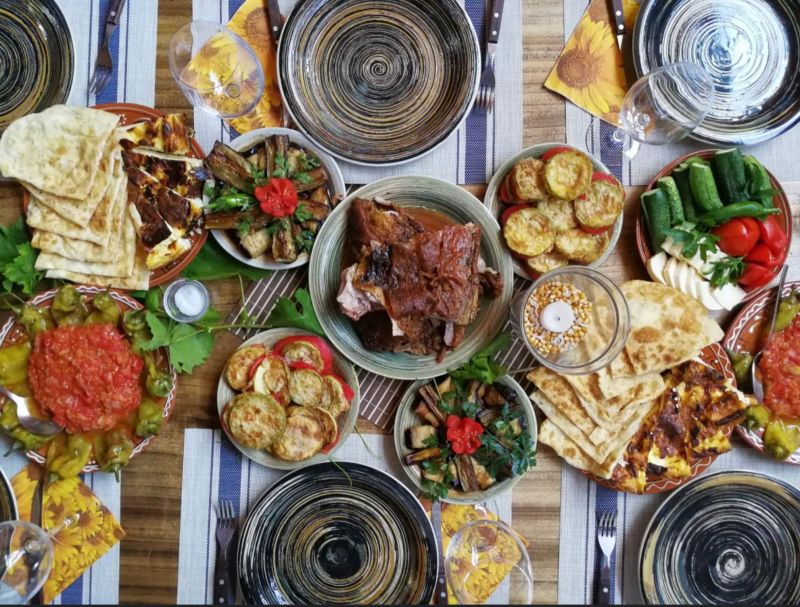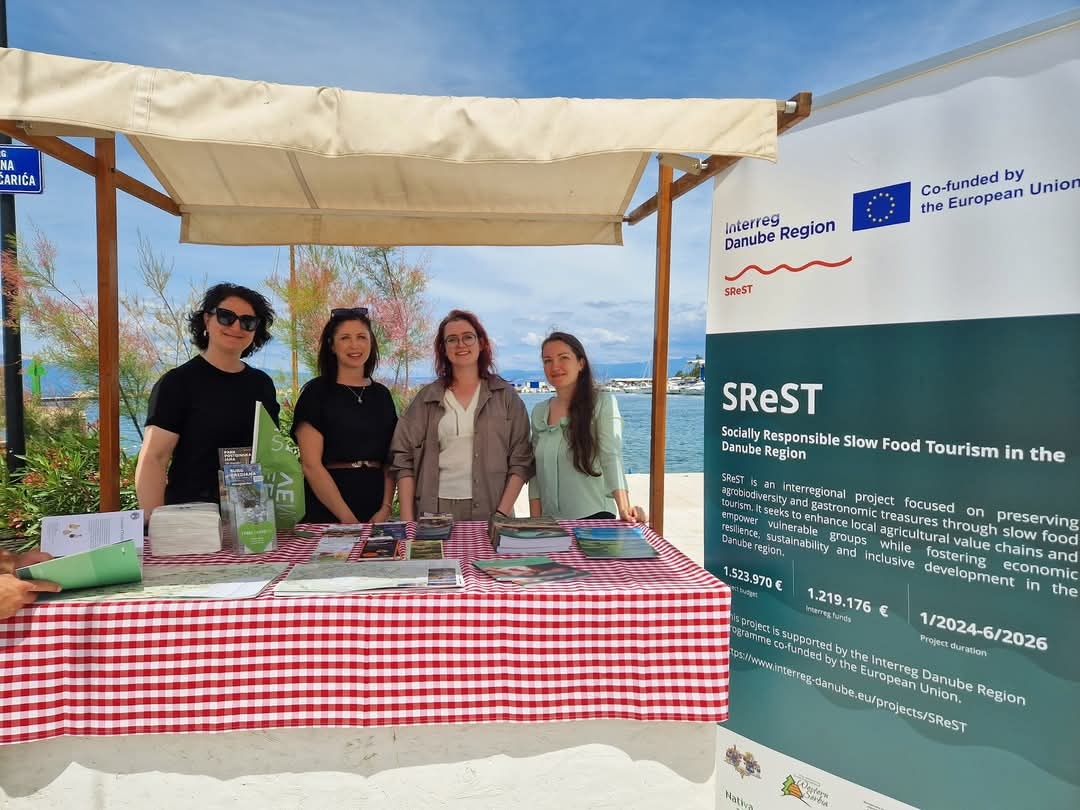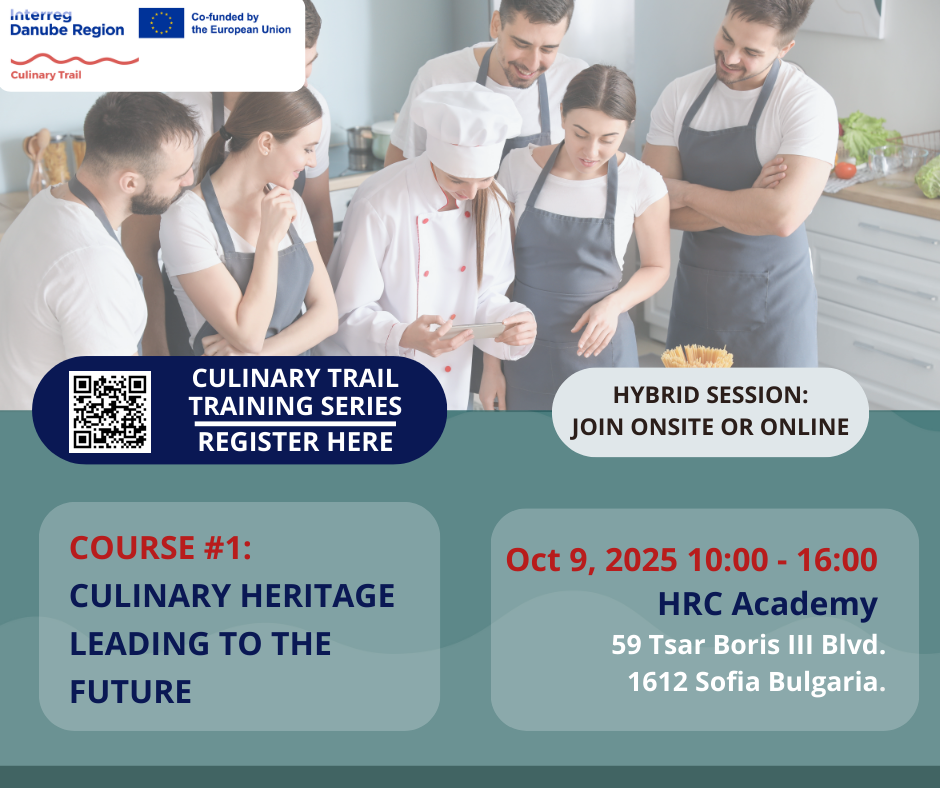
.
Open Public Call for Participation in Culinary Trail Trainings
The Culinary Trail of the Ethnic and Local Cuisine in the Danube Region project is proud to launch a comprehensive series of training programs designed to preserve, celebrate, and professionalise the rich culinary traditions of the Danube Region. Developed under the Thriving Culinary Heritage initiative, these training programs are a unique opportunity for individuals and communities to gain knowledge, practical skills, and certification in the field of ethnic gastronomy, wine culture, and culinary tourism. The trainings are available in physical, online, and hybrid formats to ensure accessibility for all participants across the region.
Why Participate?
By joining the Culinary Trail trainings, participants will:
● Preserve cultural heritage by learning how to communicate the stories, traditions, and symbolism behind local dishes and wines.
● Develop practical skills in cooking, storytelling, food and wine pairing.
● Engage with sustainable practices that promote local, seasonal ingredients, zero-waste cooking, and community-based sourcing.
● Strengthen professional opportunities in tourism, hospitality, gastronomy, and education.
● Network and collaborate with peers, experts, and organisations across the Danube Region.
● Receive a certification issued upon participation and fulfilling the assessment criteria.
Training Courses Offered
Course 1: Culinary Heritage Leading to the Future (Applications are open until 3 October 2025)
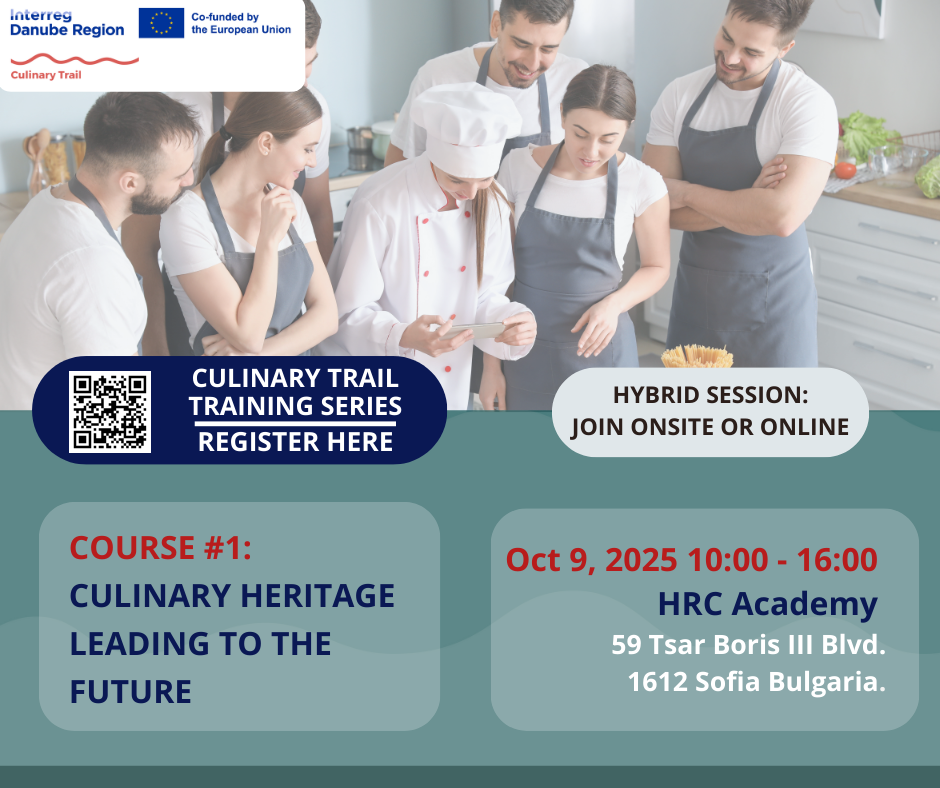
This training empowers minority community representatives to become ambassadors of their culinary heritage. Participants will learn traditional cooking, storytelling, and workshop facilitation, preparing them to lead community events that celebrate and preserve local food traditions while fostering pride, diversity, and sustainable heritage education.
Key features:
● Understand the cultural and historical roots of ethnic cuisines in the Danube region.
● Recognise and work with traditional ingredients and cooking tools.
● Apply basic culinary techniques rooted in ethnic traditions.
● Adapt traditional recipes using sustainable, locally sourced ingredients.
● Experience intergenerational knowledge transfer through storytelling and collaborative cooking.
● Understand the role of culinary heritage in identity, community, and tourism. Substitution of the ingredients or cooking techniques to a more sustainable way and local cuisine adaptation.
Target Group: Minority representatives, culinary students, hospitality professionals, researchers, enthusiasts
Course 2: Sommelier Beginner Course
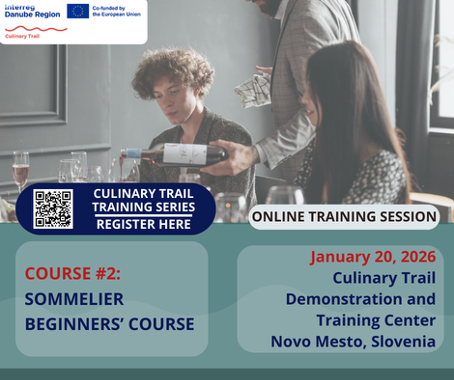
This one-day course introduces the essentials of wine—origins, tasting, service, and food pairing—with a focus on Danube wines. Designed for beginners and culinary enthusiasts, it combines interactive tastings, demonstrations, and assessments.
Key features:
● Understand how wine is made and what influences wine style.
● Recognise regional grape varieties and their characteristics.
● Apply structured methods for tasting and describing wine.
● Demonstrate basic wine service and storage skills.
● Match food and wine using classical and regional pairings.
Target Group: Entry-level sommeliers, culinary students, hospitality professionals, food tourism entrepreneurs
Course 3: Pair Like a Sommelier
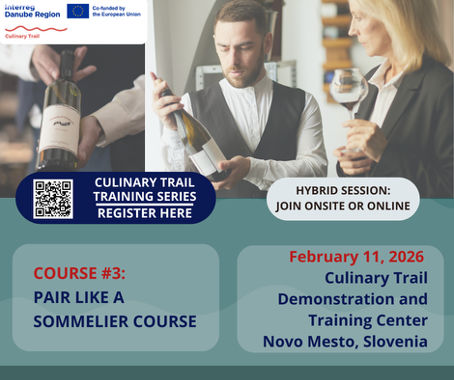
This advanced course explores Danube wine and food pairing traditions through tastings, analysis, and workshops, helping sommeliers, chefs, and hospitality professionals master regional pairing techniques.
Key features:
● Analyse how Danube subregions and terroir influence wine style and food compatibility.
● Identify indigenous grape varieties and key aroma/flavour markers in regional wines.
● Evaluate advanced winemaking techniques relevant to food pairings (e.g., lees ageing, amphora fermentation).
● Design culturally authentic pairing menus that reflect traditional Danube gastronomy.
● Detect and diagnose common regional wine faults.
● Demonstrate professional wine service in pairing contexts, including decanting and advanced glassware use.
Target Group: Practising sommeliers, chefs, hospitality professionals, wine importers, educators, and trainers
Training Formats and Accessibility
To ensure inclusivity and broad participation, all courses are delivered in:
● Physical format: In-person workshops at training centres with barrier-free access.
● Online format: Pre-recorded lectures, quizzes, captioned videos, and downloadable resources via Moodle.
● Hybrid format: Synchronous learning where participants can join live sessions remotely and interact with trainers and peers.
Accessibility measures include multilingual support, mobile-friendly platforms, and outreach to disadvantaged, rural, and minority communities.
You are welcome to participate in all three courses, or you may choose to join only the ones that interest you the most.
Sustainability Focus
The Culinary Trail trainings embed sustainability and responsibility in every module:
● All training programs are rooted in sustainability principles, with a strong focus on promoting the use of local, organic, and seasonal ingredients that support biodiversity and reduce food miles.
● Zero-waste practices are embedded into both the cooking and sommelier training modules, including upcycling tasks, responsible portion planning, and efficient storage techniques.
● Emphasis is placed on traditional preservation methods (e.g., fermentation, drying, pickling), which minimise energy usage and packaging waste.
● Collaboration with local farmers, artisans, and winegrowers ensures short supply chains and encourages participants to build community-based sourcing networks.
● Training modules encourage ethical food practices, including animal welfare, fair trade, and cultural respect for traditional knowledge holders.
● Training programs encourage business development, regional growth, job creation, capacity building, and the empowerment of participating individuals.
● Social sustainability is reflected in the integration of deprivileged and marginalised groups.
To attend the Training Programs, please register on the following form:
(link: https://forms.gle/e2DkUHinxw89cUjy6 )
News & Events
Read the most recent updates and explore the upcoming events.

